What are the highest paying doctoral degrees? Despite stories of candidates being “overqualified” for job openings, or potential employers passing over applicants with “useless” degrees, Ph.D. holders have the lowest average unemployment rate of any level of educational attainment.
Generally speaking, gaining more years of higher education is almost always good for your earnings potential!
Short of professional degrees (which include Doctors of Medicine and Juris Doctors, or lawyers), Ph.D.’s also earn the most over their lifetime when compared to other degree types. Take a look at the highest-paying doctoral degrees!
Additional Resources: America’s Most Popular PhD Degrees
The Highest Paying Doctoral Degrees

Now that we’ve covered the important factors that affect Ph.D. earnings (including industry and location of employment), let’s take a look at what specific highest-paying doctoral degrees are available on a national level.
We’ve looked at over 50 of the most common doctoral degree programs in terms of early career earnings, mid-career salaries, and “maximum” earnings. While there are obviously outliers with Ph.D. programs in many of these fields, “maximum” career earnings were taken by noting the earnings of the top 10% of earners with the degree in question, or the average salary for degree holders with the degree in a single city, whichever is greater.
Below we’ve ranked the highest paying doctoral degrees by their “maximum” salaries.
Ph.D. in Statistics

Statisticians utilize statistical analysis to aid in decision-making and product development in a wide range of industries. Commonly employed in business, health care, government roles, think tanks, technology, and non-profits, statisticians are in high demand among organizations that intake enough data to require statistical analysis.
Most statistician jobs require a master’s degree, so obtaining a doctoral degree in statistics helps statisticians to stand out even more in this sought-after profession. It’s noteworthy that doctorate degrees in statistics have one of the highest starting salaries of doctorate degrees surveyed. Their “maximum” salary, however, is slightly lower than the remaining professions in our ranking.
- Average Early Career Salary: $58,310
- Average Mid-Career Earnings: $67,230
- ‘Maximum’ Earnings: $78,760
SEE: DOCTOR OF STATISTICS (PH.D. STAT.) SALARY AND INFORMATION

Ph.D. in Biomedical Engineering

As populations age and health care becomes more reliant on big data and technology, Biomedical Engineering stands to play a more and more central role in healthcare solutions.
In fact, the Bureau of Labor Statistics notes that Biomedical Engineering roles are expected to increase by more than 5% in the next seven years. Presently a doctoral degree in Biomedical Engineering stands as the primary way to become involved with research in biomedical research.
Often paired with an M.D., some medical device makers who also practice as medical doctors make substantially more than the maximum salary listed below. Just looking at the Ph.D. in the subject, however, the most common job description includes designing, studying, or improving biomedical devices.
Common locations of employment for biomedical engineering include hospitals, consulting firms, research groups, university settings, and manufacturing companies. It’s worth noting that while early-career average earnings are on the lower end of our list, by mid-career, Ph.D.’s in biomedical research are farther into the pack.
- Average Early Career Earnings: $62,647
- Average Mid-Career Earnings: $70,619
- ‘Maximum’ Earnings: $88,164
SEE: DOCTOR OF BIOMEDICAL ENGINEERING (BME PH.D.) SALARY AND INFORMATION

Ph.D. in Immunology

Immunologists are medical researchers (and for those with M.D.s, practicing physicians) who focus on disease immunity. For those holding Ph.D.s in Immunology, common work settings include teaching in universities, research in universities or hospitals, policy-related roles, or research in public and private labs.
While dual M.D.s and Ph.D.s are often required to pursue research on your own as an immunologist, just one of these two degrees focused on immunology is required to obtain a position in public and private research settings.
Since 2004, there has been a widespread shortage of immunologists across the nation. This has led to 10%+ additional vacancies in job openings each year over the last decade. This has been reflected in the rising income of immunologists.
When looking at early, mid, and maximum salaries for immunologists, it’s of note that those holding both Ph.D.s and M.D.s stand to make substantially more than those with “just” a Ph.D. in the discipline.
- Average Early Career Salary: $248,453
- Average Mid-Career Earnings: $276,843
- ‘Maximum’ Earnings: $368,422
SEE: DOCTOR OF IMMUNOLOGY SALARY AND INFORMATION

Ph.D. in Pharmacology

Pharmaceuticals are big business, and pharmaceutical researchers are on both the front line with patients in need and scientific endeavors expanding the field. Those who pursue Ph.D. in pharmacology (a distinct degree from a Pharm.D.) are expected to have a master’s degree in related material.
Doctor of Pharmacy degrees, on the other hand, are shorter programs requiring 60-90 credit hours of prerequisites at the undergraduate level.
Pharm.D. programs prepare students for being pharmacists, while Ph.D.’s in pharmacology prepare students for research and instruction roles. While entry-level earnings are lower for Ph.D.s than Pharm.D’s, Ph.D.s can earn significantly more in research roles by their mid and late-career.
- Average Early Career Earnings: $112,065
- Average Mid-Career Earnings: $118,979
- ‘Maximum’ Earnings: $133,394
SEE: BEST ONLINE SCHOOLS FOR DOCTOR OF PHARMACY (PHARM.D.)

Ph.D. in Electrical Engineering

Electrical engineers are some of the most versatile engineering types, finding employment in aviation, consumer goods, technology, transportation, logistics, and a wide range of other industries. While most forms of electrical engineering already provide a steady and well-compensated gig for life, Ph.D.s in electrical engineering are highly sought after.
While a Ph.D. in electrical engineering may still do some engineering work (some will work exclusively on topics they have specialized in) many hold advanced degrees in engineering instead of supervising teams.
For roles like chief technology officer, head of product, staff research engineer, project expert, and director of research and development, having a doctorate degree in electrical engineering may help candidates to stand out in extremely competitive fields. Additionally, moving up the corporate ladder that far increases pay far beyond that of “run-of-the-mill” engineers.
For the top 10% of earners holding a Ph.D. in electrical engineering, over $78,000 in compensation is the norm, often ranging much higher depending on the role performed.
- Average Early Career Salary: $73,027
- Average Mid-Career Earnings: $77,006
- ‘Maximum’ Earnings: $88,708
SEE: DOCTOR OF ELECTRICAL ENGINEERING (D.E.E.) SALARY AND INFORMATION

Ph.D. in Clinical Psychology

Ph.D.s in clinical psychology have a wide range of career paths to choose from. For those looking to practice clinical psychology, a 1-year externship program is often required, where students obtain experience working with patients. Ph.D.s will also often specialize in one area. Common areas include health psychology, child psychology, and neuropsychology.
Additionally, Ph.D.s in clinical psychology may elect to work in case management roles, as supervisors in treatment centers, in hospital settings, in education, in corporations, or in research settings.
This wide range of occupational settings creates quite a disparity between early-career earnings and the earnings of the upper 10th percentile of clinical psychologists, as one can see below. With this range of roles one can pursue with a Ph.D. in clinical psychology, however, comes great freedom.
This versatile degree can help those in need, advance the study of the human mind, enhance corporate efficiency, or help in the education of the next generation of psychologists.
- Average Early Career Earnings: $46,400
- Average Mid-Career Earnings: $79,800
- ‘Maximum’ Earnings: $138,600
SEE: DOCTOR OF CLINICAL PSYCHOLOGY (CLINPSYD) SALARY AND INFORMATION

Ph.D. in Aerospace Engineering
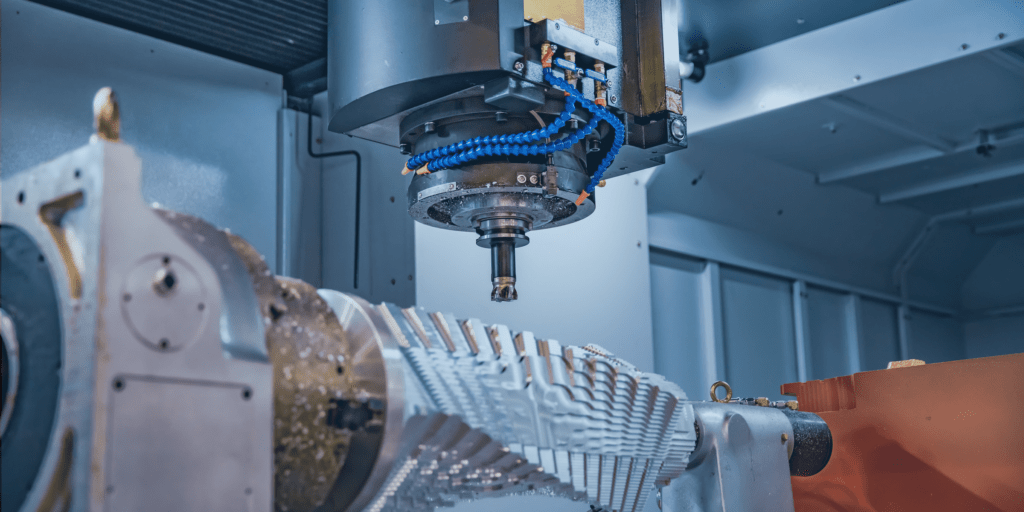
Ph.D.s in Aerospace Engineering is one of the few sub-discipline degrees among doctoral engineering choices. While there are many Ph.D.s that may help you advance in aerospace engineering fields (physics, other engineering degrees, natural sciences, and so forth), aerospace engineering Ph.D.s often spend additional time diving into research on one subsystem of aerospace technologies.
For example, sensors, payload analysis, failure analysis, and so forth. With that said, a Ph.D. in any engineering discipline often provides a framework through which recipients can address any engineering problem.
And — even if not initially — many Ph.D.s in aerospace engineering find themselves working in other engineering fields, running their own companies, or moving into management. As one may expect, aerospace can be quite a lucrative field and includes employers such as NASA, defense contractors, branches of the military, airlines, vehicle manufacturers, telecommunications companies, and research opportunities at universities.
- Average Early Career Salary: $67,093
- Average Mid-Career Earnings: $74,236
- ‘Maximum’ Earnings: $84,112
SEE: Doctor of Aerospace Engineering (Ph.D. AE) Career Guide: Salary and Degree Info

Ph.D. in Engineering

Ph.D.s in engineering are research-based degrees that focus on engineering at a theoretical level and prepare the recipient for either a role as a researcher or university instructor or industry work.
A similar doctorate of engineering degree is also a research degree (unique among professional degrees) and is similar in many ways to Ph.D. in engineering save for a higher focus on industry applications.
Ph.D.’s in engineering are some of the most versatile engineering degrees at the doctoral level. However, they may require time for the recipient to gather domain-specific knowledge (say, engineering related to wind tunnels, power plants, or aircraft).
This is evidenced by the growth in salary from entry-level through the highest 10% of earners in which engineering Ph.D.’s can nearly double their salary.
- Average Early Career Earnings: $69,140
- Average Mid-Career Earnings: $121,830
- ‘Maximum’ Earnings: $174,530

Ph.D. in Chemical Engineering
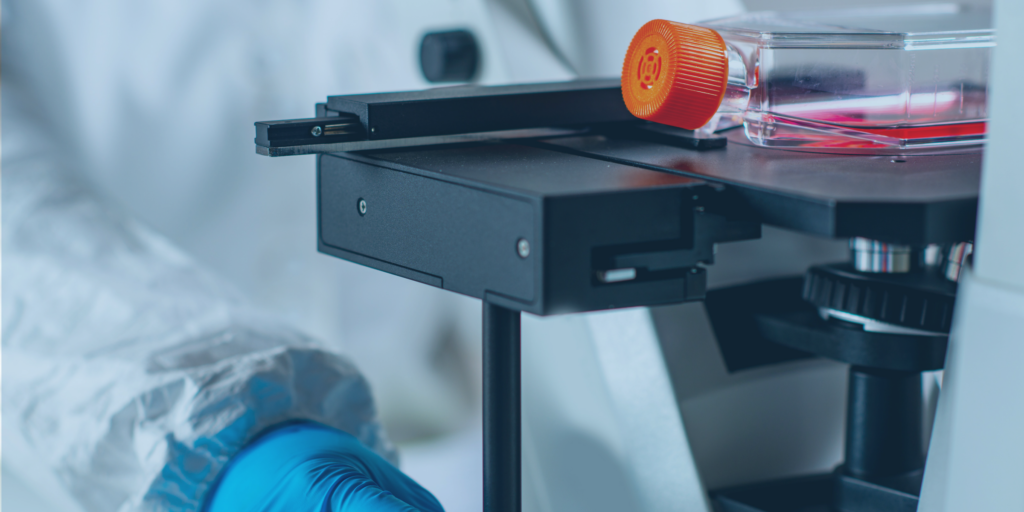
Chemical engineering is a multidisciplinary field utilizing physics, chemistry, economics, engineering, and math to resolve problems related to producing, using, transforming, and transporting chemicals.
Chemical engineers are routinely involved with all manner of consumer and business-facing production environments, from creating new materials for diapers to hazard assessments to large manufacturing plants.
Almost any consumer product produced on a large scale likely had a chemical engineer involved with some portion of manufacturing. So one can imagine the demand for chemical engineers is high. In fact, around 8% more chemical engineering manufacturing jobs are expected to be open in the next seven years.
For those with Ph.D.s in the discipline, employment opportunities also exist in research, academia, consulting roles, and entrepreneurship.
- Average Early Career Earnings: $75,633
- Average Mid-Career Earnings: $83,381
- ‘Maximum’ Earnings: $99,727
SEE: Doctor of Chemical Engineering (PhD CE) Career Guide: Salary and Info

Ph.D. in Physics

Physics is the study of matter and the behavior of matter through space and time. When many think of physicists, they think of the cosmos. But many of the hardest engineering problems are also related to physics.
Those with Ph.D.s in physics will likely have specialized in one or more subject matter areas including optics, the physics of sound, atomic physics, nuclear physics, and gravitational physics, among many others. This often leads to important research roles in private industry or university settings.
From cars to spacecraft to telescopes, physicists have played integral roles in advancing products. With that said, even if Ph.D.s in physics have previously specialized in one area of science, physics helps to prepare scientists with the ability to think about a wide range of problems.
For this reason, many Ph.D.s in physics may find themselves in demand in a wide variety of industries throughout their career. And many talented physicists will find themselves well compensated.
- Average Early Career Salary: $65,995
- Average Mid-Career Earnings: $71,659
- ‘Maximum’ Earnings: $114,248
SEE: Doctor of Physics (Ph.D. Physics) Career Guide: Salary and Info

Ph.D. in Organic Chemistry

Chemistry is the study of the structure, properties, and reactions between compounds and materials. Organic chemistry utilizes the same research methods to focus on organic matter.
The good news is that this collection of compounds and materials (those that contain carbon) comprise a majority of known chemicals. Furthermore, all living matter is the study of organic chemistry. This means that applications for analysis through organic chemistry are veritable and limitless.
From pharmaceuticals to natural resources and geology to chemical engineering, the results of organic chemistry are all around us. Unfortunately (or fortunately if this is not the case for you), organic chemistry is known by many as one of the “hardest” subjects taught in higher education. For those who can excel in the subject matter, a wide range of career opportunities and compensations are available.
- Average Early Career Earnings: $59,968
- Average Mid-Career Earnings: $67,470
- ‘Maximum’ Earnings: $84,061

Ph.D. in Biochemistry & Molecular Biology

Biochemistry is the scientific study of chemical processes related to or within living organisms. Molecular biology is an approach to studying biological mechanisms from a molecular level.
Together these fields of study offer a uniquely fine-grained way of studying living systems. While Ph.D.s in biochemistry and molecular biology are highly specialized, they find employment in a surprisingly wide range of settings.
From state crime labs to pharmaceutical development projects, biochemists and molecular biologists are often some of the most crucial specialists for ascertaining what goes on in our body at a molecular and chemical level.
Additionally, Ph.D. programs in these disciplines may, of course, find employment in research and instruction in university settings.
With this wide range of employment settings, there is also a wide range of compensation for biochemists. For the top 10% of earners, however, the field can be quite lucrative, making it our 4th highest-paying doctoral degree for 2022 and 2023.
- Average Early Career Earnings: $67,506
- Average Mid-Career Earnings: $73,701
- ‘Maximum’ Earnings: $82,048
SEE: Doctor of Molecular Biology (PhD Mol Biol) Career Guide: Salary and Info

Ph.D. in Computer Science

Computer science is the study of the theory of computation as well as the design of computational systems. Computer science as a field of study has nearly as many sub-disciplines are there are forms of computing technology.
Though many Ph.D. recipients in the field will have specialized in a handful of technologies or theoretical components related to computing, computer science is also an approach to problem-solving that lends itself to the solving of many engineering situations.
While many with computer science degrees will find themselves in roles such as software developers early in their career, gaining a doctoral degree in the discipline can help workers quickly advance to positions such as systems architect, researcher, or development positions in subdisciplines of computer science.
Particularly highly compensated subdisciplines within computer science include information assurance, machine learning, artificial intelligence, virtual reality, virtualization, and many others.
- Average Early Career Earnings: $117,667
- Average Mid-Career Earnings: $130,949
- ‘Maximum’ Earnings: $149,109
SEE: Best Online Doctor of Computer Science Degree Programs

Ph.D. in Economics

Economics is the social science that is intent on studying the production, consumption, and distribution of services and goods. Economic analysis often falls into a variety of categories that a Ph.D. candidate in economics could choose to focus on.
Broadly, these segments of economic analysis include micro and macroeconomics, theoretical analysis and applied analysis, normative and positive economics, and rational and behavioral economics.
As with all social sciences, each competing school of thought offers its own insights, and many are highly sought after in many domains of industry and public life. Economic analysis is particularly sought after in fields such as education, health care, criminology, and finance, among others.
A Ph.D. in economics can, of course, also elect to work in research or academic settings depending on their skill set. While early-career earnings are quite solid for those with Ph.D.s in economics, those moving into consulting roles or finance can command much higher salaries.
- Average Early Career Earnings: $78,124
- Average Mid-Career Earnings: $93,369
- ‘Maximum’ Earnings: $106,848
SEE: Doctor of Economics (DEc) Career Guide: Salary and Info

Ph.D. in Information Assurance

Information Assurance is a discipline just recently brought to prominence by the massive amount of data and information held in computing devices and networks. With the rise in prominence of the internet and connected devices, many corporations and public entities have been unable to keep up with cybersecurity demands.
As of 2019, over 1 million cybersecurity openings will be unfilled nationwide. Additionally, the average age of those currently working in cybersecurity is approaching 50, meaning a lack of younger talent.
Though they will still need hands-on experience at lower levels, Ph.D.s in information assurance are great candidates for being the go-to resource on cybersecurity for organizations. As such, being a Ph.D. in information assurance in many organizations could put you on a shortlist for advanced positions such as chief information security officer.
While the average early and mid-career salaries of information assurance Ph.D.s are quite strong, many C-Level information assurance roles can bring in $300,000+.
The top 10% of jobs for the highest-paying Ph.D. in Information Assurance bring in over $100,000 a year or more, making information assurance the highest-paying Ph.D. surveyed in this year’s ranking.
- Average Early Career Earnings: $86,682
- Average Mid-Career Earnings: $96,249
- ‘Maximum’ Earnings: $106,915
SEE: Doctor of Information Assurance (Ph.D. IA) Career Guide: Salary and Info
Frequently Asked Questions
What is a Ph.D.?
First, we should clarify exactly what degrees we’re talking about. A Ph.D. is an abbreviation for Doctorate of Philosophy. Ph.D. holders obtain Doctorate of Philosophy degrees in some subjects. Though “Philosophy” is in the title, this is largely a historical artifact from when the study of philosophy encompassed most of the traditional arts and sciences.
Today, someone holding a Doctorate of Philosophy in Statistics will have mainly studied statistics and supporting disciplines within their course of study. The underlying spirit of the degree still applies, however.
“Philosophy” means “lover of wisdom,” while a doctorate is the highest degree in a university. Therefore, a doctorate of philosophy is the highest degree awarded to a “lover of wisdom” within the university system.
Typically this means that Ph.D. graduates have endeavored upon unique and substantial research in their field of choice and have attempted to advance their field of study.
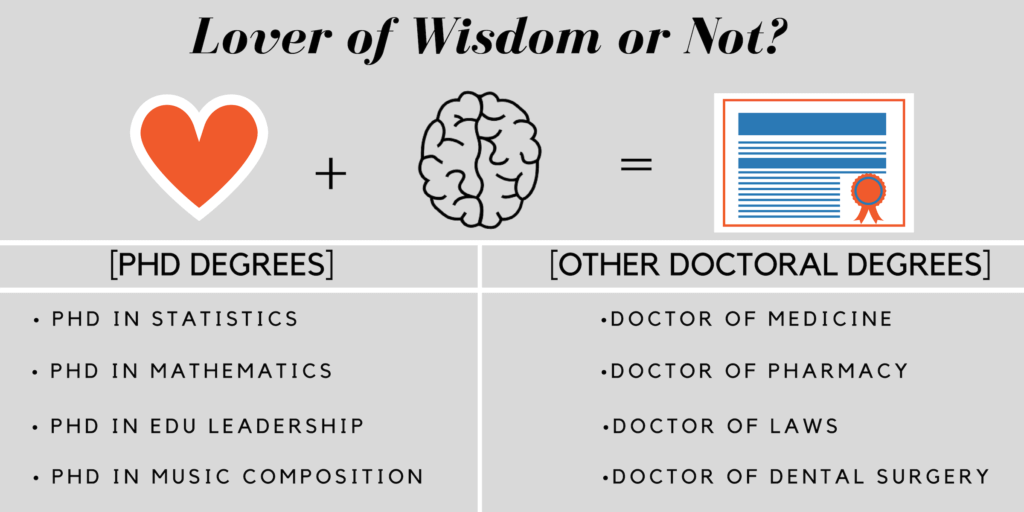
While there is a range of common doctorate degrees, many are not Ph.D.s.
This usage of the term Ph.D.– though technically correct — is contrary to the common usage of the term. In ordinary conversation, Ph.D. and “Doctorate” are often used interchangeably. The main exception to this rule is that many people do distinguish between common professional degrees (including medicine and law) and more research-centered Ph.D.s.
In our investigation, we’re looking specifically at Ph.D.s, and not professional doctoral degrees. Though in many of the most lucrative Ph.D.s listed below, we do discuss the differences and similarities between Ph.D.s and professional degrees in the same subject.
Does job location matter when considering the highest-paying doctorate degrees?
In employment, location matters. In fact, along with your line of work, the location may be the single most significant determinant of compensation.
After all, the minimum wage in some cities approaches the average wage of earners in some states. The average hourly wage in America as a whole more than triples in a handful of the most populous cities.
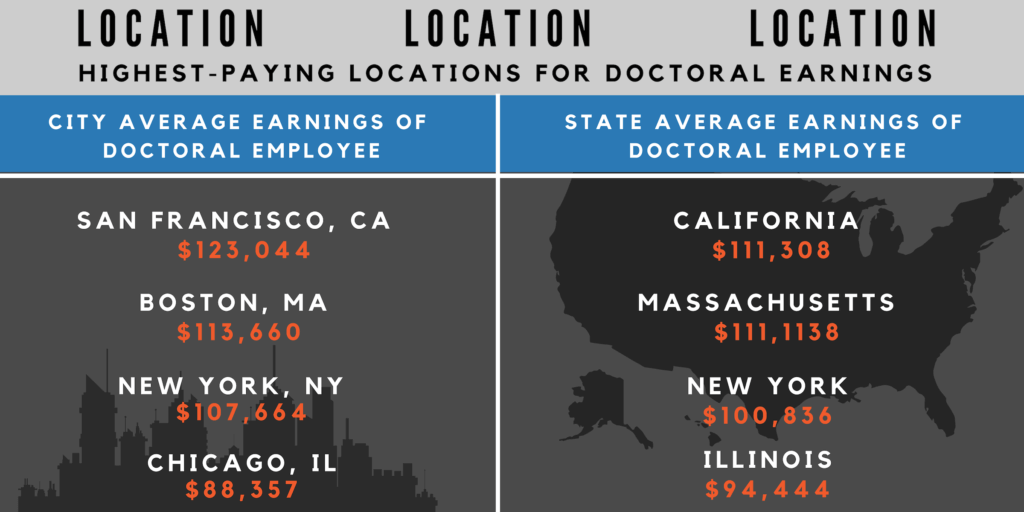
In short, no conversation about payment of Ph.D. is complete without reference to where the said Ph.D. is working. While looking at the earnings of the entire population in locations is a good indicator of whether or not Ph.D.s may make more in an area, Ph.D.s tend to occupy a disproportionately high degree of jobs in the most lucrative fields in a region.
In a region rich with natural resource extraction, many Ph.D.’s are likely employed in geology or natural resources. In an area rich with information technology organizations, more Ph.D.s in computer science are probably employed.
This is partially accounted for by the trend of universities with large research presences in a field helping to foster entrepreneurship in a given field throughout the region. High concentrations of researchers and university funding help to create more business opportunities. In turn, this draws more talent to the universities in the region.
This is to say that average earnings within a region are at times not directly tied to Ph.D. earnings. Rather, an average salary in a region may be quite low, while opportunities for Ph.D. holders may be centered around the most well-supported industries specific to the region. With that said, many of the highest-earning cities and states in the nation are also the centers of highest compensation for Ph.D. graduates with doctoral degrees.
Does the industry matter when considering the highest-paying doctorate degrees?
The industry employing a Ph.D. holder is equally important (and often tied) to the location in which doctoral workers work when talking of compensation. While many top universities have highly regarded programs in many disciplines, many universities are known for just a handful of programs are the graduate level. This leads to geographic clusters of Ph.D.s in very different industries.
An example of the above may be seen in the following. The University of Iowa and the University of Mississippi are both well-known for their graduate programs in creative writing. A disproportionately high number of graduate degree holders in the vicinity of both universities are writers or writing instructors.
Even Ph.D.-level graduates in English literature don’t lead to as high of an income as say, chemical engineering. This industry discrepancy (among others) leads to great clusters of highest-paying doctoral degrees in California’s Bay Area, or Minnesota’s Twin Cities region (both of which are home to top-ranked chemical engineering schools).
Along with location, the industry in which a Ph.D. works is integrally tied to earning power. Below is a sampling of average earnings for the highest-paying doctoral degree by industry.
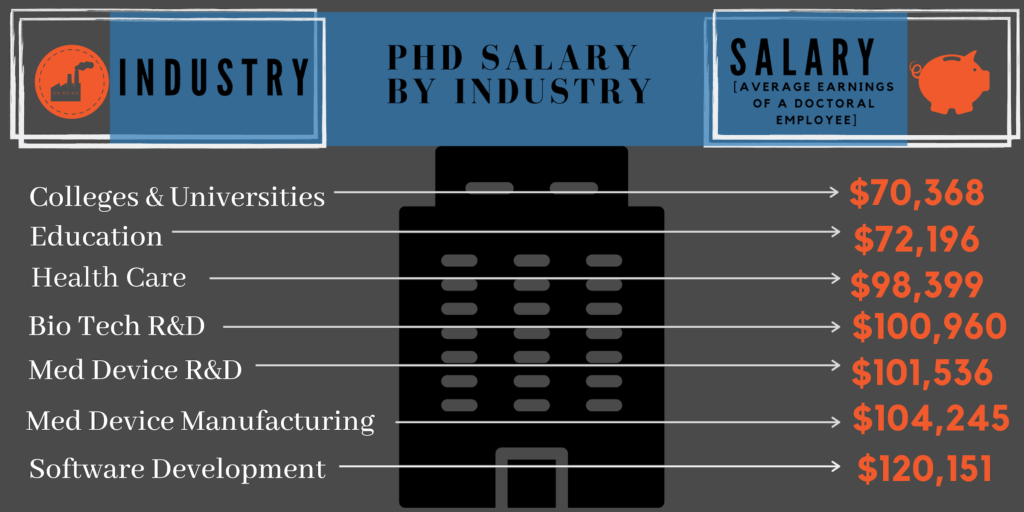
See also: Top Free (or Cheap!) Online Ph.D. Level Courses
Check this out for more information: Jobs That Require a Ph.D. or Doctorate Degree
